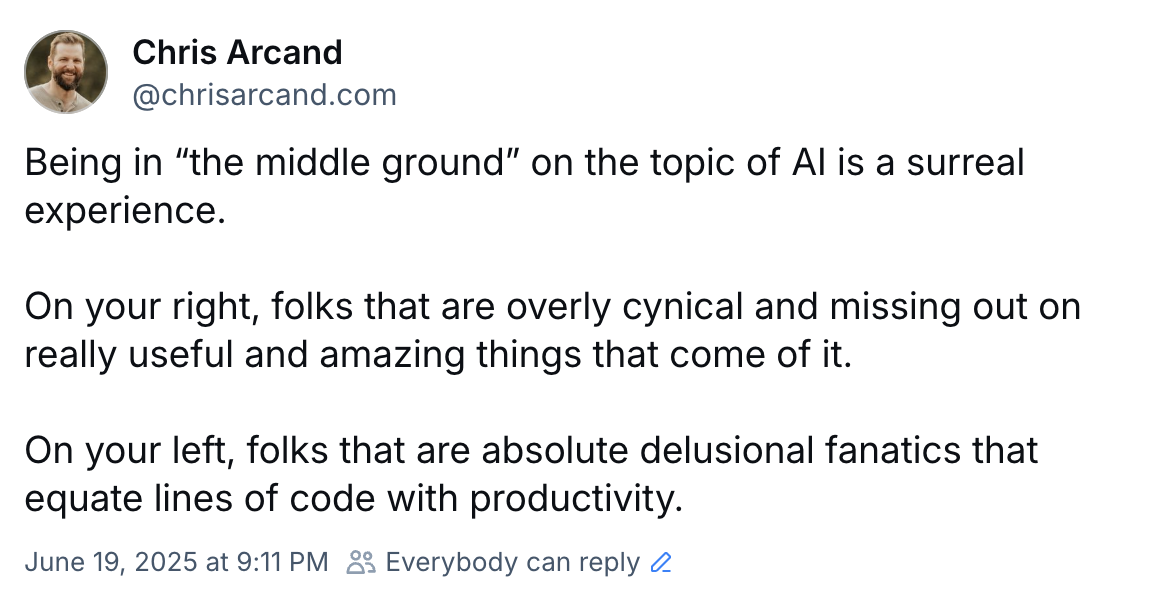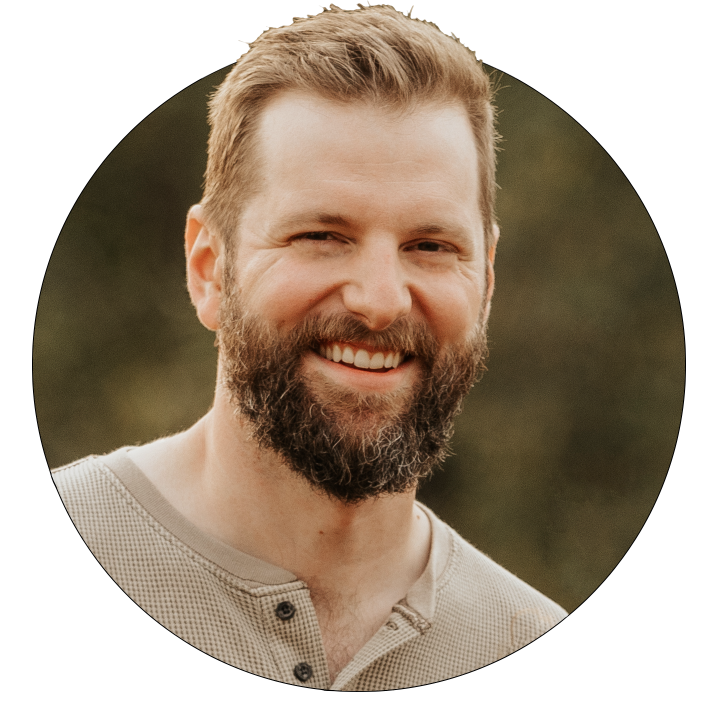A post by Justin Searls on what he calls “full-breadth developers” - those with both technical and product capabilities - and how they are becoming the clear winners in the AI era as they can effectively leverage generative AI tools to rapidly deliver complete solutions without the communication overhead of traditional role segregation.
As usual, Justin writes as if he’s in some sort of weird mind meld with me, knowing my own thoughts better than I do and articulating them in a way with clarity and honesty that I’ve admired and emulated over the course of my own career - and have benefitted enormously from while perhaps only doing it half as well.
Bits that especially resonated with me include a sense of balance between the hype and the cynics that I’ve said is downright surreal to be living through:

A lot of developers are feeling scared and hopeless about the changes being wrought by all this. Yes, AI is being used as an excuse by executives to lay people off and pad their margins. Yes, how foundation models were trained was unethical and probably also illegal. Yes, hustle bros are running around making bullshit claims. Yes, almost every party involved has a reason to make exaggerated claims about AI.
All of that can be true, and it still doesn’t matter.
…
And I realized that developers I know who’ve embraced AI tend to be more creative, more results-oriented, and have good product taste. Meanwhile, AI dissenters are more likely to code for the sake of coding, expect to be handed crystal-clear requirements, or otherwise want the job to conform to a routine 9-to-5 grind. The former group feels unchained by these tools, whereas the latter group just as often feels threatened by them.
When I take stock of who is thriving and who is struggling right now, a person’s willingness to play both sides of the ball has been the best predictor for success.
As we say goodbye to an era, I’m nervous. And that’s crazy, because I simultaneously understand that I’m personally in one of the best positions to thrive. Never have I ever been more grateful for the many years I put into having a go at being an orchestral musician before I ever executed a single line of code, nor the years after that I spent deep diving into the ‘craft’ of software, when that’s what it was. Never have I been more grateful for years of deep diving on extremely technical bits while also spending years of essentially being a product manager.
I can’t fathom trying to be a junior developer right now. I’m sure it will be fine, folks will adapt, but man I just personally do not have the answers for how to truly grok software in this gross climate of mega ‘productivity’ and delivering extremely quick results with more tooling and less of everything else. My philosophy on learning software early on in my career was spending enormous amounts of time truly digging deep, spending untold amounts of time in a debugger and reading source. Often, this would start with some incredibly silly curiosity that I would just not let go of until I figured it out, learning many bizarre and esoteric things along the way. Is that still valid anymore? Maybe. Maybe not, though. Most likely, as with most things in life, it’s not black and white and the answer is actually “Yes, but also no.” And I think Justin agrees:
Part of me is already mourning the end of the previous era. Some topics I spent years blogging, speaking, and building tools around are no longer relevant. Others that I’ve been harping on for years—obsessively-structured code organization and ruthlessly-consistent design patterns—are suddenly more valuable than ever. I’m still sorting out what’s worth holding onto and what I should put back on the shelf.
I’m still doing this mental sorting as well. If you’re a senior in the industry, doing that sorting
for yourself is both an urgent and important task. For example, mastering the intricacies of your
text editor (AI agents already code faster than you can think) or knowing every detail of your
exact programming language (what Ruby’s $SAFE variable does is not a thing worth retaining,
probably) are things that are probably headed to the mental wastebin. Conversely, maintaining
balance and being self aware enough to avoid becoming an expert beginner are more
important than ever.
